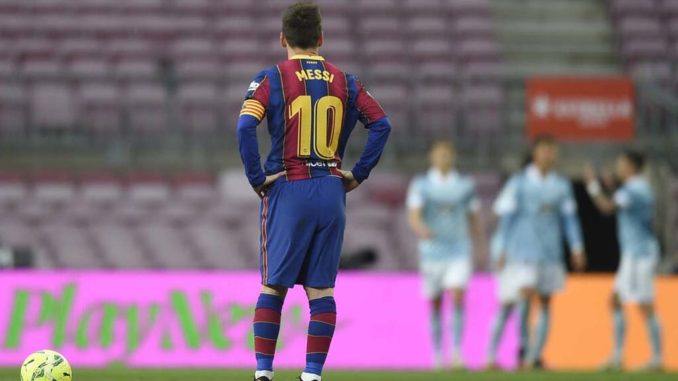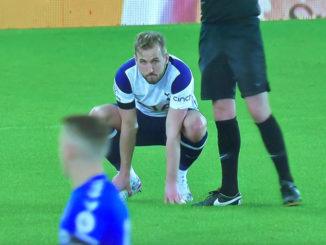
The full extent of Barcelona’s problems was disclosed in an audit that revealed the club lost £409 million and were on the brink of bankruptcy.
The full extent of Barcelona‘s dire financial position has been revealed, with the club recording a £409million (€481m) loss for last season.
The financial struggles the Catalan club is facing due to the coronavirus pandemic is public knowledge, but the full extent of their problems has now been laid bare.
On Wednesday, the ‘Blaugrana’ released the results from a Deloitte audit that started after current club president Joan Laporta arrived in March following the resignation of former chief Bartomeu and his board of directors last year.
The audit, which former Barcelona CEO Ferran Reverter presented, painted a grim picture for the club and showed that the club ‘would have been dissolved if they were a PLC’.
According to Reverter, the audit concluded that ‘there have been serious administrative deficiencies’ during the administration of Bartomeu.
“The new board of directors and its new executive structure encountered an economic and financial situation marked by negative equity and in a situation of technical bankruptcy, if it was a PLC, [the club] would have been dissolved,” he said.
The audit also revealed that Barca lost more than £400m in the 2020-21 campaign after revenue decreased and expenses went up.
According to the audit, The La Liga giant’s revenue dropped by 26%, with just £537m coming in compared to £727m the season before. This was because of the absence of fans who were shut out from games because of the Covid crisis.
Barcelona relies on football tourism for much of its revenue. But with stadium tours cancelled, revenue dropped substantially at the Nou Camp.
Meanwhile, the club’s expenses rose by 19%, moving from £812million to £1billion despite cutting costs through salary cuts for players.
As a result of this, the club posted £384m worth of debt by June. Meanwhile, debts in recent seasons are believed to have already totalled more than £1.1bn.
“There was no operating cash flow as the club struggled to pay all the salaries,” Reverter continued.
“There was an urgent need for refinancing.”
Last week, Barcelona’s salary cap limit was slashed by the La Liga from £246m to £85m. In the 2018-19 season, they had a salary cap of €671m (£580m). But it was slashed to €382.7m (£331m); a fall of €288.3m (£249m).
Meanwhile, the pandemic is not just at fault for Barca’s financial crisis; an unsustainable wage to turnover ratio is also at fault and has seen the wage bill fall to the £85million they have this season.
Earlier in the summer, current club president Laporta explained to reporters that the club’s wage bill with Lionel Messi on the books would equal 110% of their income.
But with Messi now departed from the club, Barcelona’s salary bill remained at an untenable 95 per cent. Other high earners were moved on, with Antoine Griezmann sent back to Atletico Madrid, while Miralem Pjanic was loaned out to Besiktas.
According to Reverter, the audit was needed to fully understand the club’s financial situation after Bartomeu left amid his fallout with Messi.
Reverter also revealed that the audit took longer than expected because several documents couldn’t be found, including emails that have reportedly been deleted. A ‘forensic study’ is still being conducted to detect possible irregularities.
An increase in the players’ payroll and administrative expenses were key things identified as the cause of the club’s financial struggle. A six-fold increase in financial costs was also pointed out.
Reverter mentioned the transfers of Philippe Coutinho for £145m and Griezmann for £108m as examples of bad management in signings.
“There was no financial planning. They signed players without knowing if they could pay for them,” Reverter said.
“There was an inverted pyramid, with veteran players having long contracts and young players having one-year contracts, which makes it difficult when it comes to negotiating.”
Reverter also revealed that the club had not complied with its liabilities to banks, the Spanish league and UEFA. He also revealed that the club’s facilities had not been maintained properly, including the Nou Camp Stadium.
While Bartomeu had said the pandemic was largely to blame for the club’s financial problems, Reverter revealed that the effect of the pandemic so far was about £92million and did not justify the club’s poor financial situation.
During the summer, Barcelona’s financial turmoil was exposed when new arrivals could not be registered until some big earners were taken out of the wage bill and some players took pay cuts.
Reverter said the club would have to trust the youngsters from Barcelona’s famed ‘La Masia’ academy for its future success.
“If we keep doing that, we can put Barca back where it deserves to be,” he said.
“Barcelona has endured many crises before, but it has always been able to overcome them.” He concluded.


